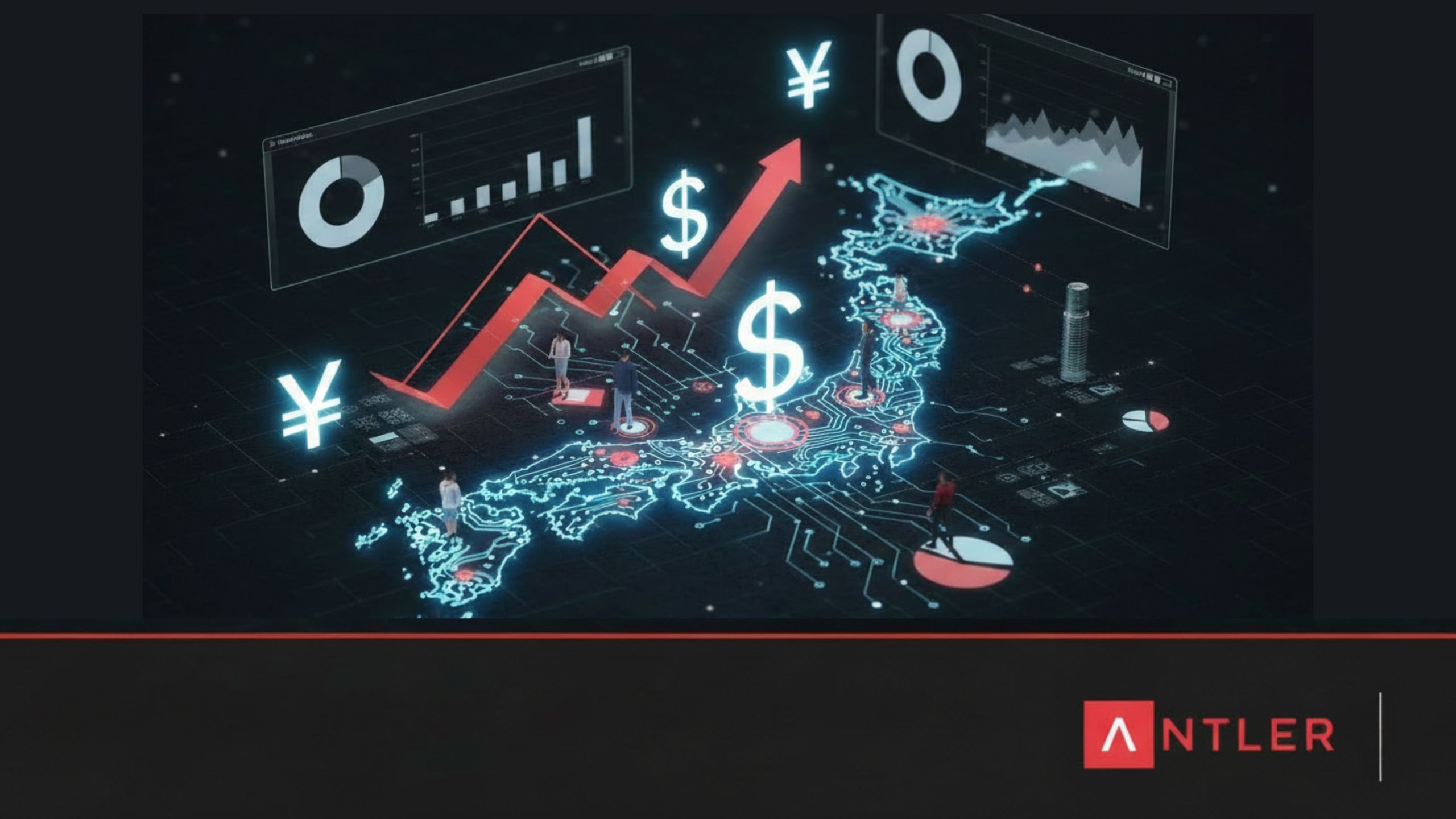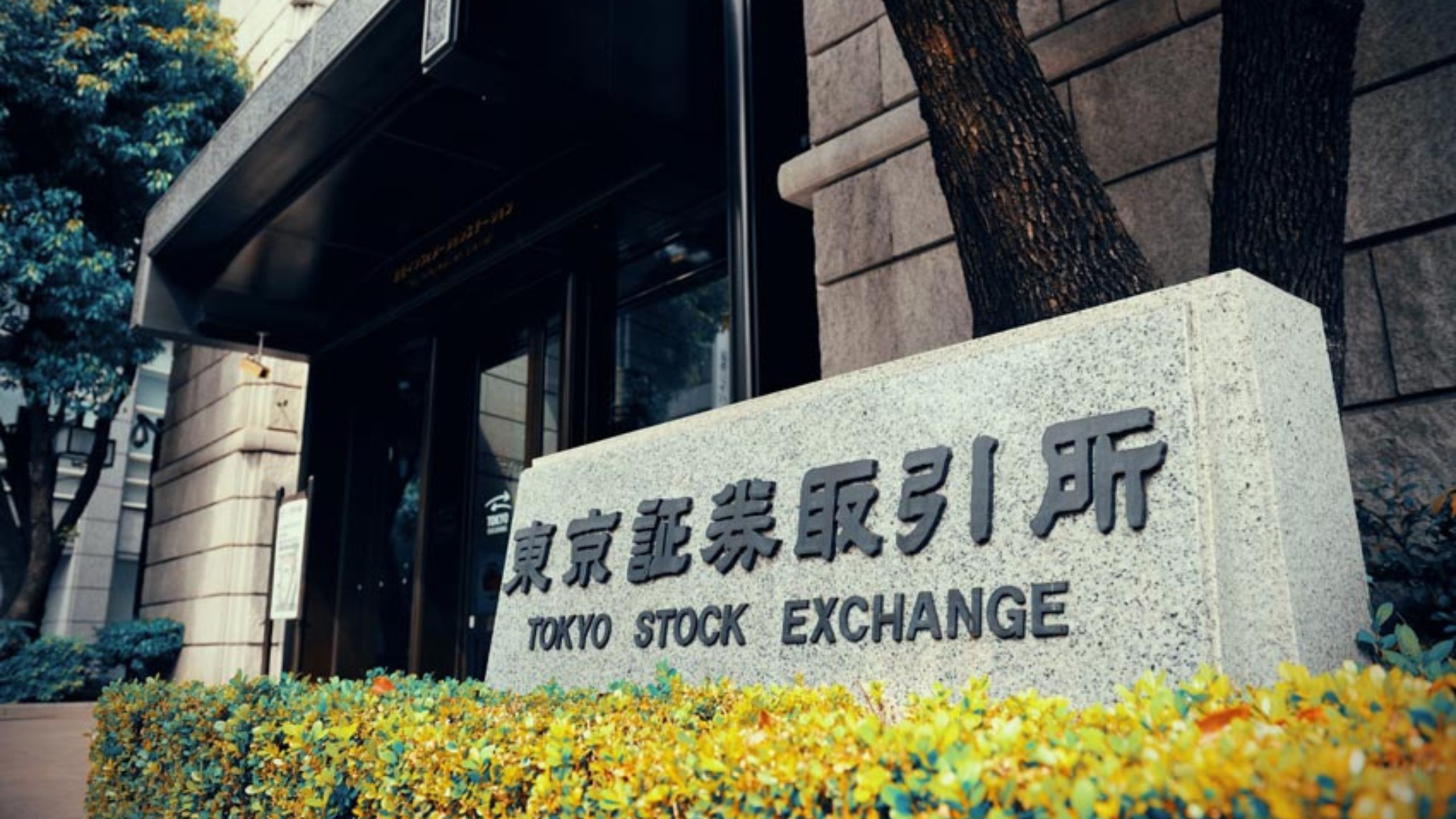AsiaTechDaily – Asia's Leading Tech and Startup Media Platform
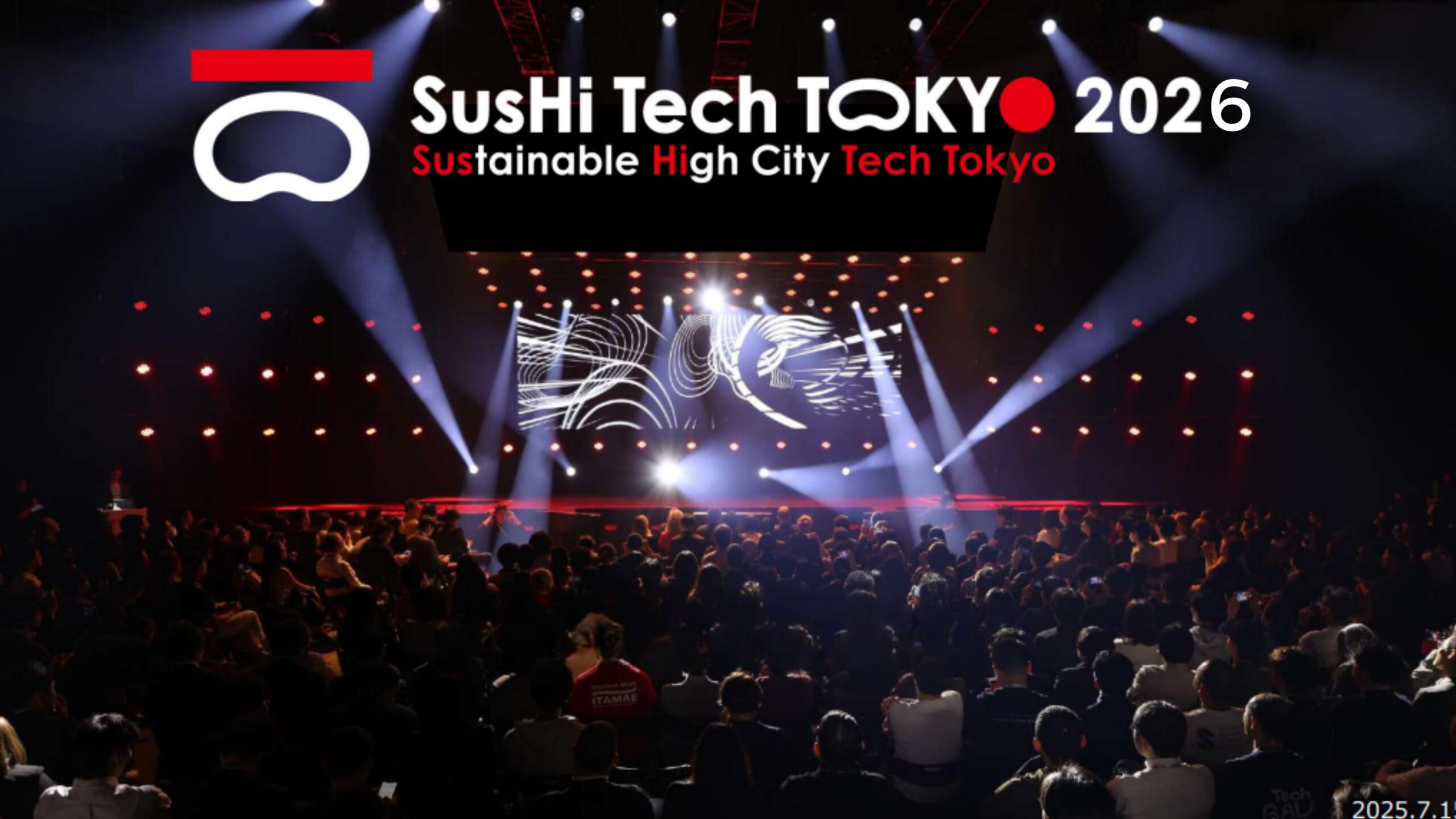
A City That Innovates for Everyone: SusHi Tech Tokyo 2026 Opens Its Doors to the World
With over 600 startup booths and leaders from 60+ cities, Tokyo’s innovation summit invites Asia’s brightest minds to co-create the cities of tomorrow.
Tokyo, a city known for its unique harmony between tradition and technology, is once again taking a leading role in shaping the future of innovation in Asia. In April 2026, the Japanese capital will host SusHi Tech Tokyo 2026, the region’s largest startup and technology conference. The event will serve as a major platform for startups, investors, and government leaders to collaborate on building sustainable cities through advanced technology.
Organized by the Tokyo Metropolitan Government (TMG) and supported by Japan’s leading economic organizations, the conference reflects the city’s long-term vision of creating a global innovation hub. Under the theme “Realizing Sustainable Cities through High Technology,” SusHi Tech Tokyo 2026 will bring together thousands of participants, including over 600 startups and representatives from more than 60 cities around the world.
For startups and investors across Asia, the event is more than a conference—it is a gateway into Japan’s rapidly expanding innovation ecosystem, offering access to a powerful network of corporates, policymakers, and venture investors.
The Evolution of SusHi Tech Tokyo: From Local Initiative to Global Platform
The term “SusHi Tech” stands for Sustainable High City Tech Tokyo, a phrase that embodies the city’s commitment to advancing both sustainability and high technology. What began as a local initiative to strengthen Tokyo’s startup ecosystem has evolved into a global platform connecting entrepreneurs, cities, and institutions.
The event is part of Tokyo’s broader innovation policy framework under the Startup Strategy Promotion Headquarters within TMG. This unit is responsible for planning and executing strategies to position Tokyo as an international center for entrepreneurship. Through programs such as Tokyo Innovation Base (TIB) and Access to Tokyo (A2T), the government provides direct support to startups seeking to establish or expand their operations in Japan.
Tokyo’s “10×10×10 Innovation Vision”, introduced by the Tokyo Metropolitan Government, outlines an ambitious goal — to expand the city’s startup base, unicorn count, and public–private partnerships by ten times within the next five years. SusHi Tech Tokyo stands as the flagship initiative driving this mission forward, serving as a convergence point where entrepreneurs, investors, and institutions connect to share insights, build collaborations, and highlight the latest advancements shaping Tokyo’s innovation landscape.
The event is also aligned with Tokyo’s 2050 Strategy, which focuses on urban resilience, digital transformation, and environmental sustainability. Through this alignment, SusHi Tech Tokyo functions as more than an annual exhibition; it operates as a mechanism for policy-driven innovation and long-term collaboration between governments and private industry.
The 2025 Edition: A Milestone in Global Engagement
The 2025 edition of SusHi Tech Tokyo established new records in both participation and scale. The event, held at Tokyo Big Sight, drew 57,698 participants from over 100 countries and regions, reaffirming Tokyo’s position as one of the most international startup conferences in Asia.
Some of the key outcomes from 2025 included:
- 607 startups exhibited, with 55% from overseas, demonstrating the event’s growing international profile.
- 47 corporate partners and 35 municipalities participated, strengthening the collaboration between private companies and city governments.
- Over 6,000 business meetings were conducted during the two business days.
- The speaker lineup included 355 experts, of which 45% were female and 50% were international, reflecting a strong commitment to diversity and inclusion.
- The first-ever Public Day attracted 14,000 students and families, expanding the event’s reach beyond professionals to engage citizens in technology and sustainability discussions.

The 2025 conference covered a wide range of topics including artificial intelligence, quantum computing, food technology, and sustainable agriculture. It also hosted the G-NETS Leaders Summit, attended by representatives from more than 60 cities worldwide, reinforcing the event’s focus on global collaboration for urban innovation.
In essence, SusHi Tech Tokyo 2025 proved that Tokyo’s approach—combining government leadership with private-sector participation—can attract and integrate international stakeholders into Japan’s innovation ecosystem.
SusHi Tech Tokyo 2026: A Global Stage for Innovation
Building on the success of the previous edition, SusHi Tech Tokyo 2026 will take place from April 27 (Monday) to April 29 (Wednesday, Public Holiday), 2026, at Tokyo Big Sight (West Halls 1–4). The conference is organized by the Tokyo Metropolitan Government with support from Japan’s most influential economic and business organizations, including Keidanren (Japan Business Federation), Keizai Doyukai (Japan Association of Corporate Executives), Japan Association of New Economy, and the Tokyo Chamber of Commerce and Industry.
The event will be divided into two key segments:
- Business Days (April 27–28, 2026) – Focused on startups, investors, corporations, and ecosystem enablers.
- Public Day (April 29, 2026) – Open free of charge to the general public, students, and families, designed to increase awareness of innovation among citizens.
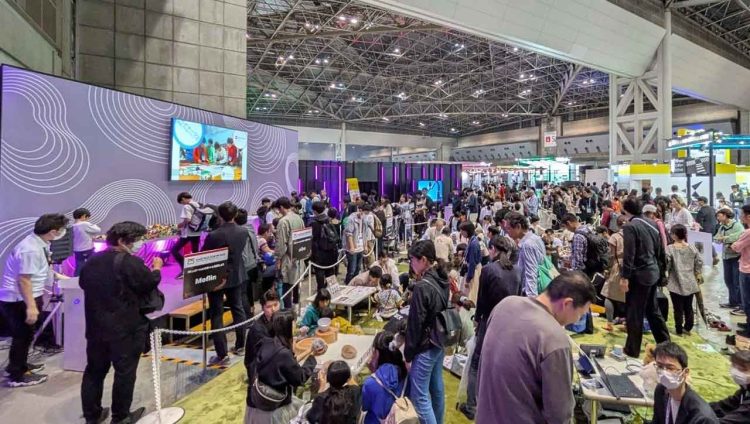
Scale and Participation
The 2026 edition will feature:
- 600+ startup booths
- City and corporate partner exhibits
- G-NETS Leaders Summit 2026, expected to host leaders from 60+ cities worldwide
- SusHi Tech Challenge 2026 Pitch Contest, offering a JPY 10 million grand prize
With expanded exhibition halls and new networking zones, the 2026 conference will serve as a larger and more inclusive platform for global startups, investors, and government representatives.
Key Programs and Timelines for Startups
To facilitate participation and planning, the organizers have released detailed schedules for the main programs.
1. Startup Booth Exhibition: Showcasing Innovation on a Global Stage
The Startup Booth Exhibition is one of the core components of SusHi Tech Tokyo 2026, offering selected startups the opportunity to present their products, technologies, and business models directly to global investors, corporations, and government representatives.
- Applications Open: September 19, 2025
- Domestic Deadline: December 10, 2025 (23:59 JST)
- Overseas Deadline: December 31, 2025 (23:59 JST)
- Exhibition Fee: JPY 250,000 (approximately USD 1,650)
- Booth Package Includes:
- One 1-meter display table
- Two chairs
- Power outlet
- Company name panel
- Access to on-site business matchmaking tools and exhibitor directory listing
Eligibility and Requirements:
Participating startups must have a market-ready product or service aligned with the event’s theme of “Sustainable Cities through High Technology.” Teams are expected to maintain an English-speaking presence at their booth throughout all three event days, ensuring effective communication with both domestic and international visitors.
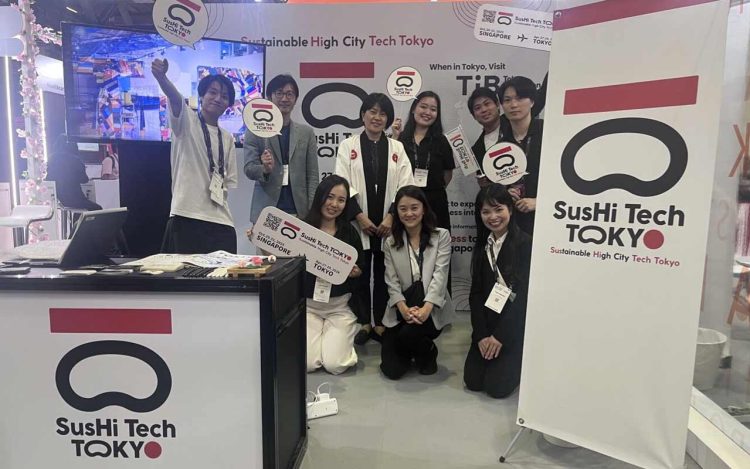
Added Value for Startups:
This exhibition is not simply a display opportunity—it is a direct channel to potential funding, strategic partnerships, and pilot projects. In previous editions, participating startups secured introductions to major Japanese corporations, municipal innovation departments, and international investors. Each exhibitor is also featured in the official SusHi Tech Tokyo Startup Catalogue, distributed digitally and on-site to corporate partners and VCs.
The exhibition floor serves as a curated marketplace for innovation, where founders can meet investors, engage with potential clients, and receive real-time feedback from industry leaders and policymakers.
2. Pitch Contest — The SusHi Tech Challenge 2026
The SusHi Tech Challenge is the flagship pitch competition of the event and one of the most prestigious startup contests in Asia’s innovation calendar. It is designed to identify high-impact startups with scalable technologies that address pressing urban and environmental challenges.
- Entry Opens: September 19, 2025
- Domestic Deadline: December 10, 2025
- Overseas Deadline: December 31, 2025
- Semifinal: April 27, 2026
- Final: April 28, 2026
- Grand Prize: JPY 10 million (approximately USD 66,000)
- Additional Benefits:
- Direct access to global venture capitalists and corporate innovation teams
- Extensive media exposure through event coverage
- Opportunities for post-event mentorship and follow-on introductions arranged by TMG
About the 2025 Edition:
In 2025, the contest received 657 applications from 46 countries, underlining its international appeal. Twenty finalists were invited to present on the main stage before a global jury that included representatives from Breakthrough Energy, Sozo Ventures, MPower Partners, and Remarkable Ventures.
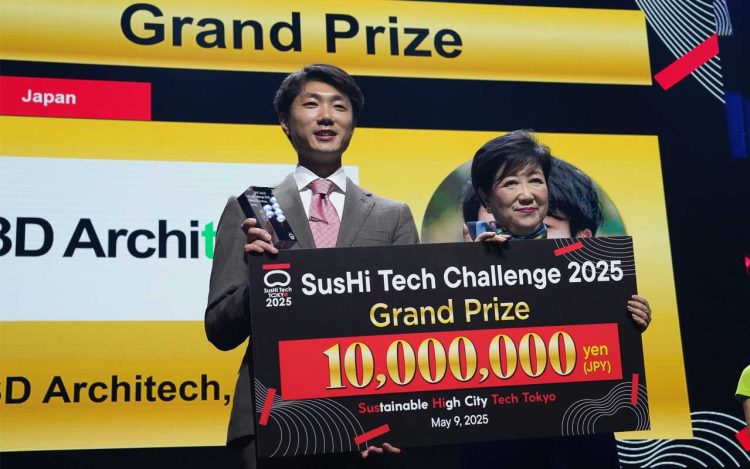
Many of the participating startups went on to form partnerships with Japanese corporates or secure follow-up investments. The 2026 contest is expected to attract an even larger and more diverse applicant pool, with an expanded focus on deep tech, AI, mobility, climate innovation, and smart infrastructure.
Judging Criteria:
The evaluation process emphasizes five key aspects:
- Innovation and technology differentiation
- Feasibility and scalability of the business model
- Contribution to sustainable urban development
- Team capability and leadership
- Potential for collaboration with Japanese corporates or municipalities
Why It Matters:
Winning or even participating in the SusHi Tech Challenge positions startups as credible players in Asia’s competitive innovation landscape. Beyond the financial prize, it opens doors to strategic investors, pilot opportunities, and government-backed acceleration programs.
3. Ticketing and Access: Connecting People, Ideas, and Market
Access to SusHi Tech Tokyo 2026 is designed to be flexible and inclusive, accommodating startup founders, investors, corporate executives, students, and the general public.
- Sales Start: October 22, 2025
Ticket Categories and Benefits:
- VIP Ticket — JPY 100,000 (~USD 660):
Provides access to the VIP Lounge, reserved seating at keynote sessions, and entry to exclusive networking events with investors, government officials, and speakers. VIP ticket holders also receive complimentary lunch passes and access to the invitation-only closing reception. - General Ticket — JPY 10,000 (~USD 66):
Offers access to all business sessions, exhibition zones, startup pitches, and open networking areas during Business Days. Ideal for entrepreneurs, industry professionals, and ecosystem enablers seeking to explore collaborations or investment prospects. - Student Ticket — JPY 2,000 (~USD 13):
Designed to encourage youth participation, this ticket grants access to all general sessions and the Public Day exhibition. Students can attend startup showcases, technology demos, and career networking sessions organized in collaboration with universities and accelerators.
Discounts:
- Super Early Bird (–50%) available until February 28, 2026
- Early Bird (–30%) available until March 31, 2026
Public Day:
The Public Day, on April 29, 2026, is open free of charge to all visitors, including families, students, and local communities. It aims to make innovation more accessible and inspire the next generation of entrepreneurs.
Language & Accessibility:
- Business Days will primarily be conducted in English, ensuring accessibility for international participants.
- Public Day activities will be held mainly in Japanese, featuring interactive exhibits and live demonstrations suitable for general audiences.
Visitor Experience:
All attendees, regardless of ticket type, gain access to matchmaking platforms, digital exhibitor directories, and the official event mobile app, which provides real-time updates, schedules, and meeting booking functions.
The event layout includes multiple networking zones, thematic discussion areas, and startup showcase pavilions, offering ample opportunities for interaction and collaboration.
The Institutions Behind SusHi Tech: Building Tokyo’s Innovation Infrastructure
The driving force behind SusHi Tech Tokyo is the Tokyo Metropolitan Government (TMG). Through the Startup Strategy Promotion Headquarters, TMG has established a policy infrastructure to attract and support innovation.
Key Supporting Programs
- Tokyo Innovation Base (TIB): Located in the heart of Tokyo, TIB is a global innovation hub that offers co-working spaces, events, and business support for local and international startups.
- Access to Tokyo (A2T): A consultation desk operating in five cities—Singapore, Bengaluru, London, Paris, and San Francisco—to support foreign companies entering Tokyo.
- Tokyo One-Stop Business Establishment Center: Simplifies administrative procedures for foreign firms establishing entities in Japan.
Together, these initiatives create a comprehensive support ecosystem that reduces friction for international startups expanding into Japan.
Public-Private Collaboration
SusHi Tech Tokyo is unique because it is both government-led and ecosystem-driven. The event’s collaboration with influential organizations such as Keidanren and Keizai Doyukai ensures strong participation from Japan’s largest corporations. These partnerships encourage open innovation and create opportunities for startups to work directly with established enterprises.
This structure also reflects Tokyo’s broader policy orientation—turning policy into practice by connecting government resources, corporate capital, and startup creativity under a shared vision of sustainable urban development.
Tokyo’s Role in the Asian Innovation Corridor
Tokyo’s leadership in organizing SusHi Tech Tokyo underscores its ambition to serve as a gateway to Asia’s startup ecosystem. The city has been actively building international partnerships, particularly with innovation hubs in Seoul, Singapore, and Bengaluru.
At events such as Singapore Week of Innovation and Technology (SWITCH 2025), the Tokyo Metropolitan Government promoted collaboration between Japan and Southeast Asian startups, highlighting shared goals around smart cities, green technology, and artificial intelligence. This cross-border engagement has strengthened Tokyo’s reputation as a trusted, accessible partner for regional founders.
For Korean, Indian, and ASEAN startups, SusHi Tech Tokyo 2026 represents a strategic opportunity. The event provides a policy-safe and structured entry point into Japan’s corporate and municipal innovation market, enabling startups to pilot technologies and scale through collaborations with Japanese partners.
Investors and corporates also benefit from exposure to high-quality startups operating in fields that align with Japan’s long-term national priorities—mobility, sustainability, energy transition, and aging population solutions.
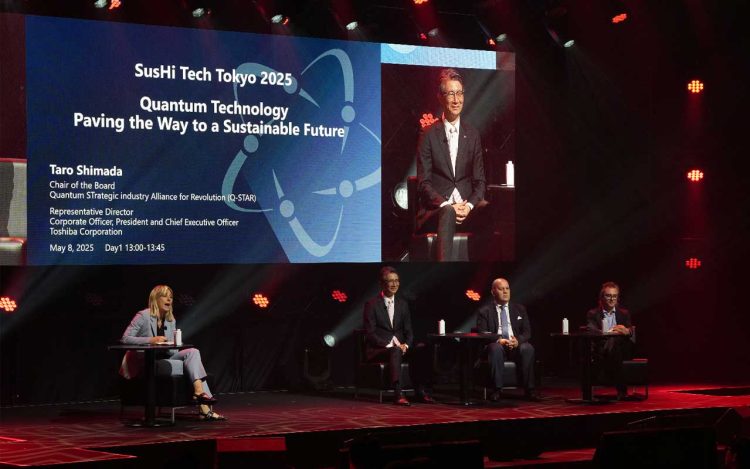
Japan’s Startup Renaissance: Challenges and Opportunities
Japan’s startup ecosystem has traditionally faced several constraints, including cultural risk aversion and limited early-stage venture capital. However, this landscape is rapidly changing.
The Tokyo Metropolitan Government, along with national-level initiatives, has launched several reforms to make Japan more startup-friendly—streamlining visa procedures, simplifying incorporation, and introducing dedicated funding programs. The presence of international investors and global events like SusHi Tech Tokyo is helping shift perceptions and accelerate growth.
Tokyo’s approach to innovation is particularly distinct. Rather than focusing solely on startup valuation or unicorn creation, the city emphasizes social implementation—the process of integrating technology into real urban infrastructure and public services. This model allows innovation to directly address real-world problems such as climate resilience, urban mobility, and resource management.
By positioning startups as solution providers to city-level challenges, Tokyo is turning innovation into a public good and redefining the role of entrepreneurship in modern governance.
Why Startups Should Participate in SusHi Tech Tokyo 2026
For startups and investors seeking to expand across Asia, SusHi Tech Tokyo 2026 represents one of the most strategic platforms available. The event combines the scale of a global technology exhibition with the precision of a policy-driven innovation program. It is designed not only to showcase ideas but to help participants establish meaningful partnerships, secure funding, and access one of the most advanced and structured innovation ecosystems in the world.
Below are the core advantages that make SusHi Tech Tokyo 2026 a high-value opportunity for startups and founders:
- Access to Japan’s Innovation Ecosystem:
Gain visibility among leading Japanese corporates, government officials, and investors actively seeking international partnerships. - Funding and Collaboration Opportunities:
Engage in one-on-one meetings, pitch competitions, and curated networking sessions that facilitate business expansion. - Exposure to Global Media and Policymakers:
The event attracts coverage from international outlets and participation from municipal and national leaders. - Direct Market Entry Support:
Programs such as Access to Tokyo and Tokyo Innovation Base provide operational and legal guidance to ease entry into Japan. - Sustainability Alignment:
Startups working in sectors such as climate tech, mobility, food innovation, and smart infrastructure can align with Tokyo’s policy goals and corporate demand.
For founders across Asia, SusHi Tech Tokyo 2026 is more than a showcase—it is an opportunity to integrate into a structured ecosystem where innovation meets implementation.
Conclusion: The Next Chapter of Asia’s Innovation Story
As global cities compete to define their roles in the innovation economy, Tokyo’s approach stands out for its clarity and commitment. Through SusHi Tech Tokyo 2026, the city is demonstrating how government policy, corporate capability, and startup creativity can work together to shape a sustainable urban future.
For startups, investors, and innovation leaders across Asia, the message is clear: Tokyo is open for collaboration. The 2026 conference will not only showcase new technologies but also redefine how cities, companies, and entrepreneurs can co-create solutions for the decades ahead.
In April 2026, when the world gathers at Tokyo Big Sight, it will not just witness another tech conference—it will witness a vision in motion: a city turning policy into progress and innovation into impact.
Register here
At a Glance: Key Dates and Figures

⚡ Quick Takeaways
- Event: SusHi Tech Tokyo 2026, April 27–29, 2026 at Tokyo Big Sight
- Organized by: Tokyo Metropolitan Government, backed by Japan’s top business federations
- Theme: “Realizing Sustainable Cities through High Technology”
- Scale: 600+ startups, 60+ cities, thousands of investors and corporates
- Opportunities: Startup booths, ¥10M pitch contest, investor networking
- Key Dates:
- Applications open: Sept 19, 2025
- Deadlines: Dec 10 (Japan) / Dec 31 (Overseas)
- Applications open: Sept 19, 2025
- Why Attend: Direct access to Japan’s innovation ecosystem, global exposure, and public–private collaboration opportunities


